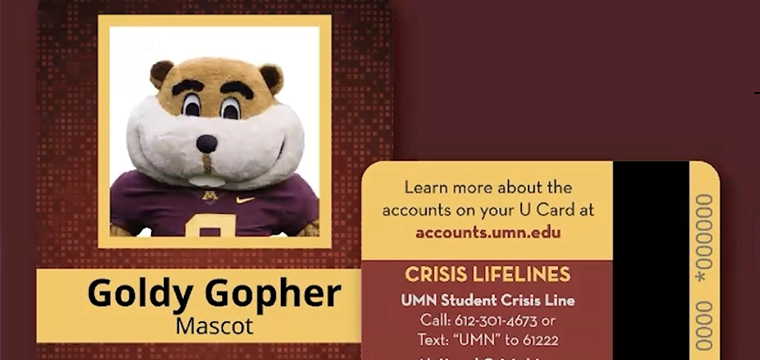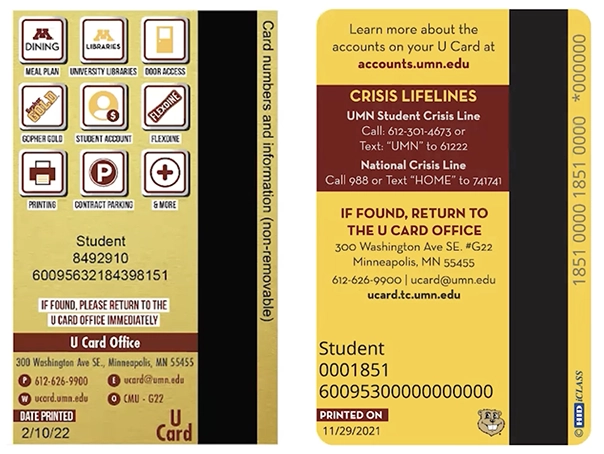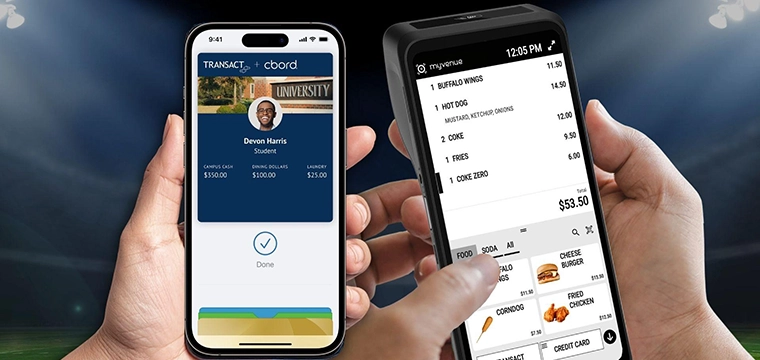
U Card team member details how and why they made the change in recent on-demand webinar
A recent online conference session explored the University of Minnesota's efforts to add mental health resources to the U Card. Nick Mabee, Strategic Communications & Marketing Manager for the U Card, details how they successfully transformed the traditional student ID card into a tool that supports the well-being of the entire campus community.
Why did the University decide to add mental health information to the U Card?
To begin, there is pending legislation at the federal level that could require campuses to do this, though Mabee explains the bill has been stalled for more than two years and thus is not imminent. The state of Minnesota also has legislation in the works.
With requirements potentially coming from both levels, the idea that they could be required to make the change at some point in the future was a consideration.

Old card back and new design with mental health resources
Student advocacy, however, was the most important driver.
“Our undergraduate student government came to us and was really interested in having this information added to help the student body as a whole,” says Mabee.
Once they had stakeholder buy-in from across the enterprise, the redesign process started. As with most campus cards, real estate on the back of the U Card was extremely limited. To make room for the new mental health info, other elements would have to be removed or reduced.
After multiple rounds of design changes, they ultimately included two crisis hotlines – the National Suicide Prevention Hotline and the university’s own crisis line. Even with just two numbers, the block of information took up nearly one-quarter of the card back.
The presentation provides a detailed look at how they transitioned from the prior design to the new one. Other topics include timelines, accessibility needs for card designs, QR codes vs. phone numbers, inclusion of mental health info for mobile credentials, and more.
Mabee’s presentation was part of a weeklong series of sessions that explored well-being from a variety of perspectives and areas of the campus enterprise. In tandem with more than 20 higher ed industry associations, NACCU helped create and promote the online conference, "Well-Being in Higher Education: Raising Literacy and Advancing the Conversation."
"Establishing a climate of well-being within university settings is a collective endeavor that transcends the confines of any single department," says to Dawn Thomas, NACCU CEO. "NACCU takes pride in collaborating with over 20 fellow higher education organizations to spotlight this critical issue, fostering dialogue, and illuminating how the campus card can serve as a gateway to supporting students on their paths to well-being."
You can check out Mabee's presentation, From Access to Assistance: Evolving Student ID Cards for Mental Health, on demand by creating a login and using the access code WELLBEING.
REGISTER NOW




